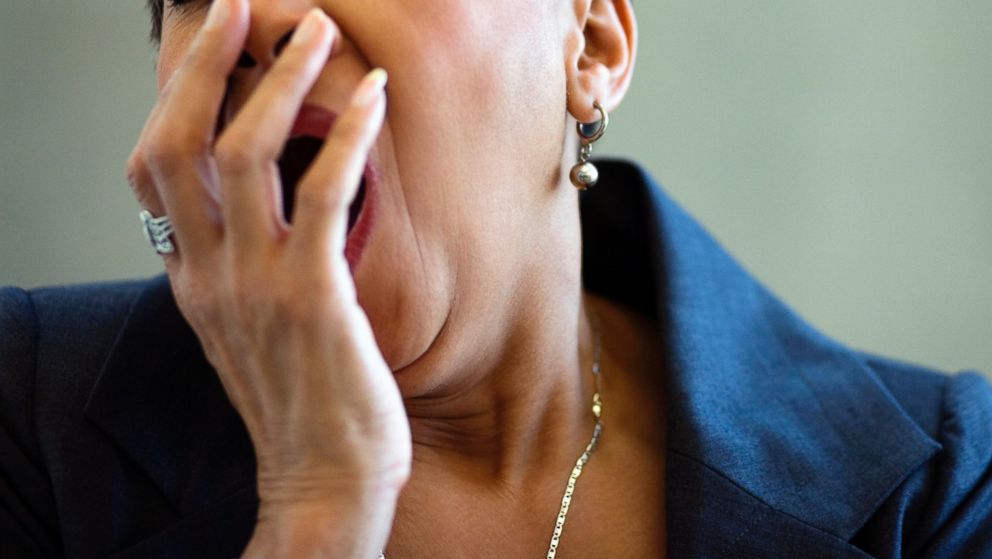Yawning, Whistling Might Get You Flagged at Airport Security
Confidential list of behaviors watched by TSA agents was recently leaked online.

— -- Excessive yawning, whistling and too much laughter could possibly find you detained by airport security agents for further questioning, according to a recently released list.
The SPOT Referral Report, which stands for "Screening of Passengers by Observation Techniques," was obtained a week ago by The Intercept, which claims the unclassified report is a "closely held" Transportation Security Administration (TSA) document detailing what Behavior Detection Officers look for when observing suspicious travelers and possible terrorists at the nation's airports.
Actions appearing on the 92-point checklist featured on The Intercept were divided into categories such as "stress factors," "fear factors" and "signs of deception," and ranged from "appears to be in disguise" and "face pale from recent shaving of beard" to "excessive yawning," "excessive throat clearing" and "gazing down."
TSA would neither confirm or deny to ABC News whether the specific indicators listed in the leaked report are used by officials or other parts of the administration. But a spokesperson did acknowledge that it does use behavior detection and analysis.
"Behavior detection, which is just one element of the TSA's efforts to mitigate threats against the traveling public, is vital to TSA’s layered approach to deter, detect and disrupt individuals who pose a threat to aviation," said a TSA spokesperson.
Detractors of the SPOT practice contend that many of the behaviors listed on the report are no different from how regular travelers appear when passing through airport security.
Meanwhile, the American Civil Liberties Union (ACLU) recently sued the TSA for not releasing SPOT documents, saying the program encourages racial profiling.
“What we know about SPOT suggests it wastes taxpayer money, leads to racial profiling, and should be scrapped,” said Hugh Handeyside, staff attorney with the ACLU National Security Project in a statement announcing the lawsuit. “The TSA has insisted on keeping documents about SPOT secret, but the agency can’t hide the fact that there’s no evidence the program works. The discriminatory racial profiling that SPOT has apparently led to only reinforces that the public needs to know more about how this program is used and with what consequences for Americans’ rights.”
But the TSA defended its program in a statement to ABC News.
“Terrorists have used a variety of items and ways to attempt to inflict harm to aircraft -- everything from shoes to liquids — but consistent across all methods of attack is the malicious intent of the actor," said a TSA spokesperson. "Looking for suspicious behavior is a common sense approach used by law enforcement and security personnel across the country and the world, that focuses on those behavioral indicators, rather than items, and when used in combination with other security layers helps mitigate a variety of threats."
But normal individuals with "strong body odor," "trembling hands," "protruding neck arteries" or exhibiting other factors noted on the report shouldn't have cause for immediate worry, cautioned the administration.
"No single behavior alone will cause a traveler to be referred to additional screening or will result in a call to a law enforcement officer," the TSA spokesperson said, adding, "Officers are trained and audited to ensure referrals for additional screening are based only on observable behaviors and not race or ethnicity.”




